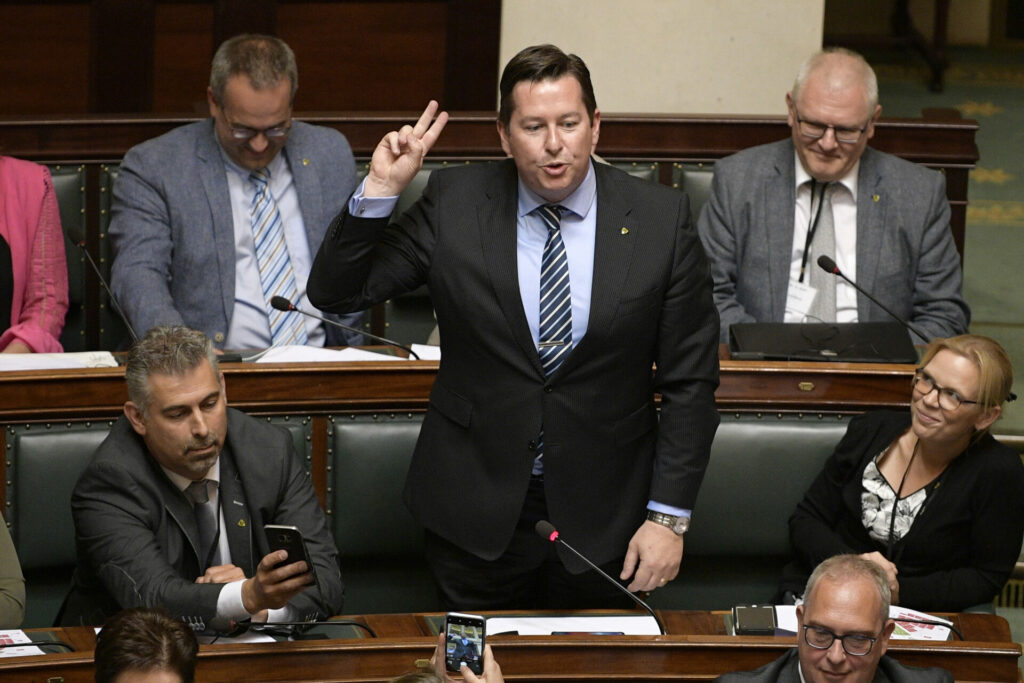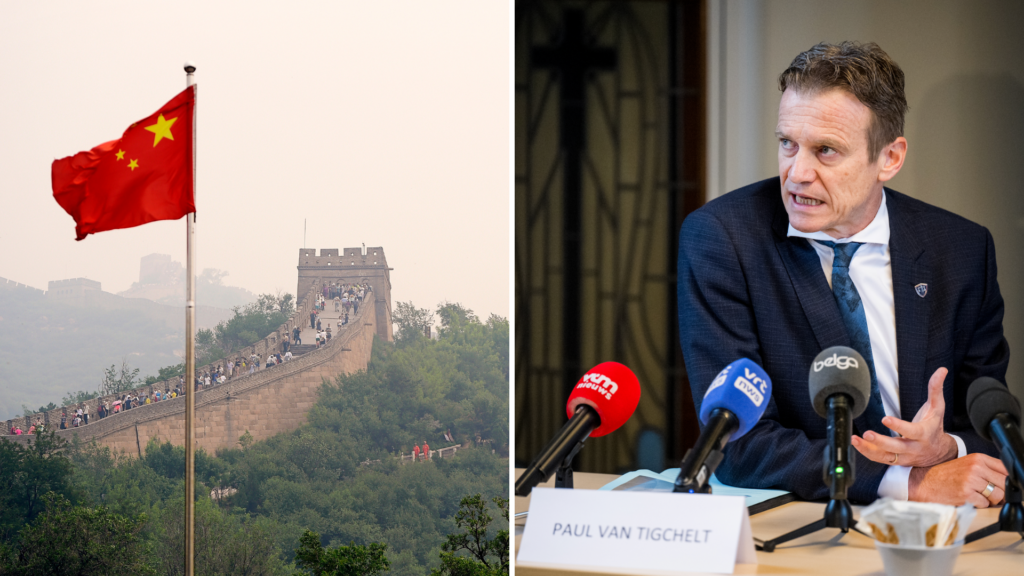Frank Creyelman, a former MP of the far-right Flemish party Vlaams Belang, was last week revealed to have acted as an informer for Chinese intelligence services, with the aim of turning Belgian policy in favour of Beijing's interests.
The links were exposed in a joint investigation by media agencies from the UK, Germany and France. It showed how Creyelman had a line of communication with an agent of the Chinese Ministry of State Security (Daniel Woo), who explained in a message to Creyelman: "Our goal is to divide US-EU relations."
Though Creyelman is no longer a standing MP, the former senator remains Vlaams Belang group leader on the Mechelen town council and maintains close political ties in Belgian circles as well as the European Parliament, where his influence was sought to persuade right-wing MEPs to criticise US energy policy.
The exposé has put Belgian politics at the centre of international attention and Vlaams Belang was quick to distance itself from Creyelman, labelling his behaviour "unacceptable" and excluding him from the party. But new leaks indicate a network of influence and espionage that extends beyond Frank Creyelman to include his younger brother Steven – who remains a serving MP for Vlaams Belang.

Vlaams Belang's Steven Creyelman pictured during the oath ceremony at the Chamber, June 2019. Credit: Belga
New information unveiled by German newspaper Der Spiegel (one of the outlets which carried out the initial investigation) shows that Frank frequently alluded to his younger brother Steven, who was better placed to assist in the paid assignments. Such was the case, for instance, when the agent Woo sought to lobby for mutual recognition of EU and China’s Covid vaccination passports in March 2021.
The Chinese intelligence officer also frequently referenced Steven Creyelman as a useful instrument for work within the parliament, particularly when Chinese telecom firm Huawei was accused of espionage in January 2020. On Chinese recommendation, Frank also discussed with his brother a parliamentary document concerning international sanctions.
Steven Creyelman verified to De Tijd and Der Spiegel that he had indeed been approached by his brother concerning the aforementioned files. However, he stated that he had been misled and was oblivious to the fact that Frank’s actions were requested by the Chinese intelligence services.
Does Belgium have a problem?
The apparent involvement of Steven Creyelman in the scandal has led MPs of other political parties to call for his suspension as chair of the military purchases committee. The Ecolo-Groen group has denounced the security threat that this represents and earlier in the week, the Chamber demanded a report from Belgium's State Security Service.
But whilst the investigation is ongoing, Creyelman has refused to step down and expressed confidence that he will be cleared. Yet other elected representatives were fiercely critical of this.
"We must finally find the courage to impose order! We demand Creyelman's suspension from his chairmanship of the military purchasing committee while awaiting the results of the State Security inquiry," argued Green MP Samuel Cogolati, who himself has been targeted by Chinese sanctions for his support of the Uighur community.
Cogolati emphasised the need for "strong action to protect our democracy." Likening this latest corruption scandal to Qatargate, he said that a judicial inquiry must be carried out "to uncover all infiltrations of Belgian institutions by Chinese intelligence services."
Related News
- Espionage and interference at highest level since Cold War, warns Belgian intelligence
- Belgium in Brief: Spies and suspicion
- Russian embassy in Brussels has most ‘spy antennas’ in Europe
On Thursday Prime Minister Alexander De Croo and Justice Minister Paul Van Tigchelt will face questions from MPs but already Van Tigchelt has called for stronger punishment for those convicted of espionage and foreign interference.
Whilst an updated criminal code will see those who are convicted face a swift penalty, including prison time, the changes won't come into effect for another two years. Van Tigchelt is clear: "It is urgent," he said on radio this morning. Fearing that spying is becoming ubiquitous in Belgium, he stresses the need for immediate change.
Some of Belgium's laws on espionage have not been updated since 1897 and fail to reflect the complexities of modern geopolitics and technology. The penal code currently lacks teeth, Van Tigchelt says, highlighting that espionage and foreign influence are not today considered crimes. Given the lack of robust laws, the Justice Minister seemed unsurprised by this latest revelation, calling it "no coincidence that spies contact parliamentarians."
He also highlighted Russia, a country known to be engaged in hybrid warfare that actively pursues disruptive political tactics: "In recent months we have deported no fewer than 19 Russian spies from the country."
"Our intelligence services have been warning for some time that Russian and Chinese spies are approaching far-right politicians because both parties are infatuated with authoritarian regimes and that makes those people impressionable," Van Tigchelt stated.

